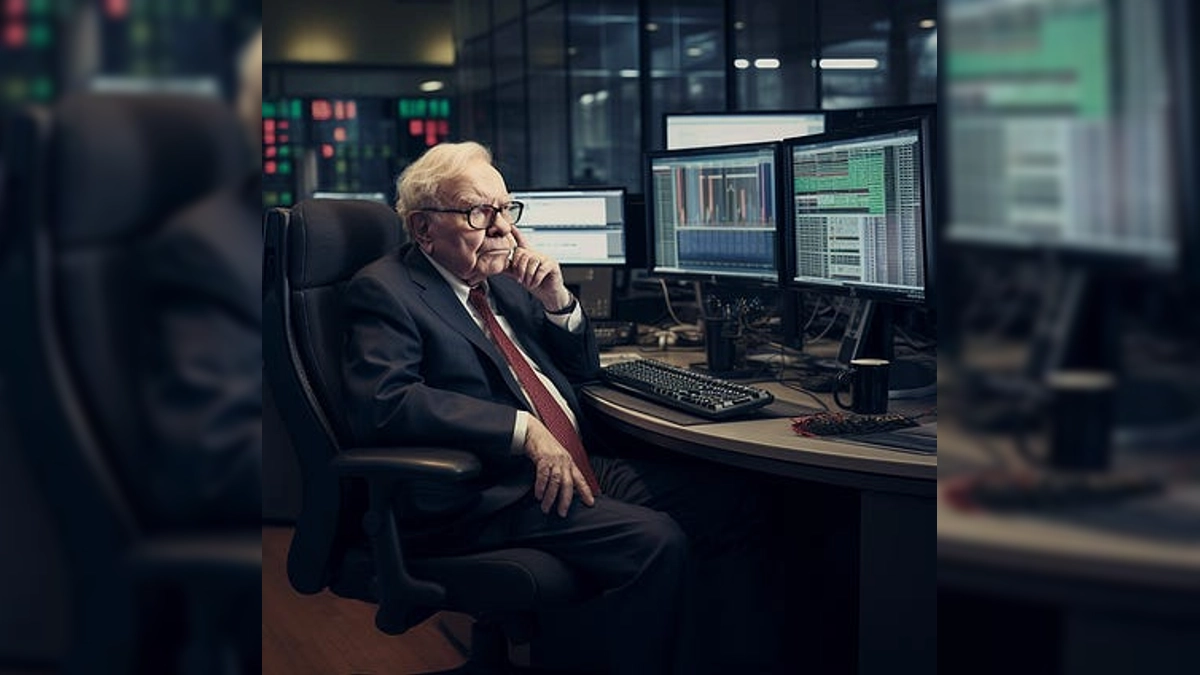11 Things I Learned About Investing
You don’t become a great investor by reading about great investors. But it's Friday. Why not indulge a little?

Hello everyone,
After reading a few excellent pieces on lessons about markets recently, here are 11 things I wish I had known much earlier (I’m sharing my favorite readings at the end).
Your first job is to know yourself. You have to understand your temperament and your relationship to money. Wrong about your temperament? Watch the market flush you out. Never contemplated your emotional relationship to money? Careful, you might self sabotage.
A series of market decisions does add up, believe it or not, to a kind of personality portrait. It is, in one small way, a method of finding out who you are, but it can be very expensive. This is the first Irregular Rule: If you don’t know who you are, this is an expensive place to find out. — Adam Smith (George Goodman), The Money Game
Knowing yourself deeply, and following your unique path, acts as protection against the herd instinct, envy, FOMO, and the deafening drumbeat of public opinion.
The same goes for investigating your motivation.
Whatever you want to do in life, you don't solve for money, you don't solve for prestige or adulation or anything like that. —Todd Combs
The best investors are obsessed with playing the game. They don’t do it only for the money. “The irony is that this is a money game,” Goodman once observed, “and money is the way we keep score.” And yet, “the real object of the Game is not money. It is the playing of the Game itself.”
The best are completely immersed and obsessed with winning. They really can’t help themselves. Many never truly retire from the markets. They are often obsessed with other games as well:
Ever since I was a kid, I liked playing games, whether it is chess, bridge, backgammon, poker, or sports. I don’t know a single great trader who doesn’t share the same trait. If doing this was about the money, I would have quit a long time ago. — Paul Tudor Jones
It’s essential that you figure out your motivation. Is it intrinsic or have you become enchanted by the outcomes you’ve observed? When Stanley Druckenmiller was asked about what he looked for in money managers, he responded with “number one, passion.”
This business is so invigorating to certain individuals, they’re going to work 24/7, and you’re competing against them. If you’re with people doing it for the money, you’re going to get run over. — Stanley Druckenmiller
Remember: these are the kinds of people you compete with.
I don’t think you can choose to be like this. For better or worse, you’re either hooked or not.
What if you’re not as passionate? Accept who you are and investigate what you are passionate about. Allow yourself to be curious. As it relates to investing, find a strategy that doesn’t require the same intensity. Ben Graham pioneered the practice of security analysis and yet he, a deeply curious intellectual, pursued a deep value strategy that allowed him plenty of time for his other pursuits. Buffett, his most famous student, on the other hand was laser focused on being the best. Buffett was willing to invest a lot more time and effort to compete. Speaking of Buffett…
You are not the next Warren Buffett. Or the next George Soros, Peter Lynch, David Tepper, etc. … There is nothing wrong with picturing yourself in someone else’s shoes early on. And it is important to understand how and why some investors excelled. But you have to integrate those lessons into a path that is uniquely yours, in markets and life.
Michael Lewis once noted that the more Michael Burry studied Buffett, “the less he thought Buffett could be copied.”
Buffett, though he had every advantage in learning from Ben Graham, did not copy Ben Graham, but rather set out on his own path, and ran money his way, by his own rules. To succeed in a spectacular fashion you had to be spectacularly unusual. — The Big Short
Get inspired by the previous generations, but don’t blindly copy.
The sweet spot is to find a strategy that works, which suits your temperament, and which interests you because…
Good investing is mostly ‘boring’ working with brief moments of excitement. I say ‘boring’ because the research process is boring to most people, but not to everyone. It is an endless loop of keeping up with the world and trying to understand things — a company, an industry, a trend, a technology, an event — by reading, crunching data, and talking to people. Every once in a while, things get exciting. Like when you find a great idea or when the market punches you in the face. And in exactly those moments, you have to resist and remain calm. It’s the inverse of how most people go through life: they run from the grind of mundane work and throw themselves into thrills.
If the process of learning about companies and markets feels like keeping up with your favorite sport or celebrities, you’re ahead of the game.
This is why there are no ‘realistic’ movies or shows about investing. You either focus on people (the drama of fraud, deals, internal politics) or rare pockets of fireworks (a crisis, a big idea, or both like the Big Short’).
Another reason for the lack of compelling storytelling is the institutionalization of finance. This is why you must understand the difference between investing and the business of investing. One is a craft, the other a career. The investor wants to make great investments. The professional investor gets paid to deliver a service for a client. A lot of people fall in love with the former but end up working as the latter.
Finding an edge in investing means gaining an advantage on the market. An edge in the business of investing can be hiring the right talent, investing in better technology, building a brand, maintaining the right culture, or cultivating important relationships. Paradoxically, the people who are very good at the business of investing can end up with more money (due to greater scale) and also create opportunities for other investors due to the constraints and incentives of their organizations.
Investing forces you to wrestle with paradoxes. There are many ways to succeed, often in contradictory ways. Take, for example, the market. What is the market? A complex adaptive system. But what is your relationship to the market?
This is where people face a fork in the road. Do you see the market as the manic-depressive cartoon of ‘Mr. Market’, an emotional source of opportunity? Or is it a force of nature and source of invaluable information?
“The market is there to serve you,” Buffett says, referencing Ben Graham, “and not to instruct you. That’s of enormous importance.”
When people talk about momentum in stocks or charting or any kind of things like that, they’re saying that the market is instructing you. The market doesn’t instruct us; the market is there to serve us. If it does something silly, we get a chance to do something. But it doesn’t tell us anything. It just tells us prices. — Warren Buffett
Buffett does his own work and if the market is out of line, he acts. When it is not, “you forget it and go play bridge that day and the next day see whether there’s something new.” But that is just one way of relating to the market.
Traders may take the opposite approach: the market is composed of people, including people who know more than the trader. There is signal to be found in the noise of the crowd. According to Bruce Kovner, “close observation of price behavior is always necessary for the discipline of successful trading.”
If we can understand what the market is telling us, we will most likely be able to understand how to trade it. Listen to the market, hear it, don’t tell it what to do. Listen. — Bruce Kovner
“A big part of my process,” Stanley Druckenmiller once explained, “is taking signals from markets.”
I’ve always believed markets are smarter than I am. They send out a message and if I listen to them properly, no matter how powerful my thesis, if they’re screaming something else, it’s telling me you’ve got to re-evaluate. — Stanley Druckenmiller
Is the market a servant or a source of valuable information? Both sides can be right in the context of their strategies. It’s important to be clear and explicit about the market’s role in your process.
Which leads us to another seeming contradiction: you can learn from any great investor, but often not what you expect. All of them can teach you about human nature, about markets, about resilience, about mistakes, and about the lonely search for opportunity. Study what worked for others, even if you never intend to pursue their strategy. What did they figure out about the world? How would they think about your strategy? What can you learn from the contrast? Remember that all of them wrestled with the same market and the same inner game.
If you are interested in learning specific strategies, you need to consider context: how does their success fit into the context of time, opportunity set, and their character? Parse their stories for what is being left unsaid (remember that the winners re-write history). Consider the whole arc of their lives. The most valuable lessons are rarely the obvious ones.
Absorb what is useful, discard what is useless, and add what is specifically your own. — Bruce Lee
It’s a delicate dance between observing what works and not overfitting to what worked this cycle.
For example, the world has a lot more tails than I imagined. On the one hand, it now seems rational to me to allocate some capital to open-ended and potentially asymmetric bets. On the other hand, chasing tails can decimate your portfolio with worthless options. Or entice you to ride a boom-bust cycle all the way up and back down again.
Long-term investment success looks pretty boring. “The unifying thing I see across the money managers that I know who have 20 plus year records that are good,” my friend Dan McMurtrie once said, “is they are never sexy at any moment in time.” At bond manager PIMCO this was called ‘strategic mediocrity.’
Be open to tail outcomes, but don’t bet your career on pursuing extremes. Outliers like Amazon or Bitcoin happen, but rarely.
Jeff Bezos to Buffett: “Your investment thesis is so simple. You’re the second richest guy in the world, and it’s so simple. Why doesn’t everyone just copy you?”
Warren Buffett: “Because nobody wants to get rich slowly.”
The market will punish you for being in a rush. Well, technically you will punish yourself.
I get it. You want to be rich and enjoy life while you’re still young. It’s just that the market does not care about what you want. It will occasionally offer amazing opportunities, what Soros called a ‘special day’, but it does so on its own schedule. Swinging for the fences when you need money is a sure way to lose your capital.
Byron Wien (RIP) recounting a conversation with George Soros: “He once said something to me that was very useful: 'The trouble with you, Byron, is that you go to work every day and you think that because you go to work every day you should do something.
I don’t go to work every day. I only go to work on the days that make sense to go to work. ... And I really do something on that day. But you go to work and you do something every day and you don’t realize when it’s a special day.”’
Investing is a game that requires a lot of patience. There are other areas in which the energy of urgency can be a huge advantage. Again: your first job is to know yourself and understand what best suits your unique character and interests.
Investing is a marathon and your most important job is to survive. Great long-term track records are rare. Even great investors who love the game burn out. Peter Lynch couldn’t find time for his family and quit. Soros once compared his fund to a parasite that was consuming him. People sprint and overtrade, take too much risk, never leave the office, burn out, ruin their health, wreck their relationships. They get lost in The Maze.
There will always be more to do in markets unless you take yourself out of the game. To get wealthy, you have to protect your capital, your mind, and your health. You have to develop the confidence that you will always find another opportunity.
Druckenmiller about his mentor Soros: “Soros is the best loss taker I’ve ever seen. He doesn’t care whether he wins or loses on a trade. If a trade doesn’t work, he’s confident enough about his ability to win on other trades that he can easily walk away from the position. There are a lot of shoes on the shelf; wear only the ones that fit. If you’re extremely confident, taking a loss doesn’t bother you.”
Finally, you don’t become a great investor by reading about other great investors. Don’t let learning turn into procrastination. If you want to become a better investor, invest. Remember what Charlie Munger said about the young man asking advice from Mozart:
A young man of 25 or so once asked to see Mozart and he said, “I’m thinking of starting to write symphonies, and I’d like to get your advice.”
And Mozart said, “Well, you’re too young to write symphonies.”
And the guy says, “But you were writing them when you were ten-years-old.”
And Mozart says, “Yes, but I wasn’t asking anybody else for advice on how to do it.”
Thank you for reading,
Frederik
What are your favorite reflections on success, failure, and lessons from years in markets? Drop them in the comments.

